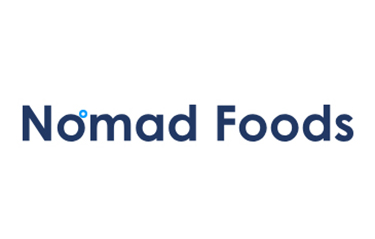Feltham, U.K.-based frozen food company Nomad Foods has introduced new timebound targets to its sustainability strategy aimed at helping it make progress on the U.N.'s Sustainable Development Goals.
Nomad’s fifth annual sustainability report, “Eating for the Planet,” was published on 6 May, 2022. Covering the period January to December 2021, it reveals how the company is widening its focus to address its impact in key areas through innovation and collaboration, including supporting its top 75 percent of suppliers by carbon footprint to set emissions-reduction targets by 2025.
In 2021, Nomad announced plans to significantly reduce greenhouse gas emissions in line with targets approved by the Science-Based Targets initiative (SBTi) and in line with the Paris Climate Agreement.
“The global momentum for climate action has never been stronger and I am incredibly proud of the progress we are making across the Nomad Foods business as we strive to bring our purpose of ‘Serving the World with Better Food’ to life and reach new milestones in a number of important areas such as nutrition and sourcing,” Nomad Foods CEO Stéfan Descheemaeker said.
In 2021, Nomad also increased the percentage of its packaging that is recyclable to 90 percent, and delivered a 32 percent reduction in edible food waste versus its 2015 baseline.
Nomad also said 98 percent of the seafood sourced for its own brands is either certified by the Marine Stewardship Council (MSC) or Aquaculture Stewardship Council (ASC). In addition, its Iglo Portugal, Findus Nordic, and Iglo Belgium portfolios are all on track to become 100 percent MSC- or ASC-certified by summer 2022. Nomad has said it plans to source 100 percent of its seafood from sustainable fishing and responsible farming sources by the end of 2025.
Nomad said 92 percent of its products are now considered a healthier meal choice as determined by the European Union, while its net sales of healthier meal choices have increased by more than EUR 440 million (USD 465 million) since 2017, when the company launched its nutritional commitment.
Additionally, it confirmed that in 2021 more than two million new households tried its meat-free “Green Cuisine” range, which includes chicken-free nuggets and fishless fingers.
Descheemaeker said with the global food supply chain on course to overtake farming and land use as the largest contributor to greenhouse gases in the agri-food sector, Nomad's ability to collaborate with its peers, suppliers, and expert partners will be vital to deliver the widespread transformation needed to create a more-inclusive and -resilient food system.
“At a time when many consumers are facing higher food and energy bills, we are also committed to providing them with great-tasting, high-quality, nutritious, and sustainably sourced frozen food at a price that is affordable," he said.







